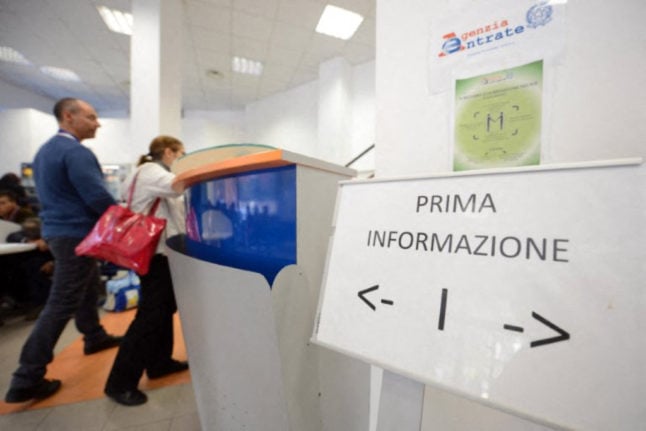People in Italy are now getting an average of five nuisance calls (or telefonate moleste) per week from telemarketers, according to consumer rights association Codacons, which estimates that the frequency of such calls – mainly from banks, telecommunications and energy companies – is now about 20 percentage points higher than in pre-pandemic times.
This increase in cold calling in Italy comes ahead of the imminent introduction of a new ‘do not call’ list for mobile phone numbers, which spells trouble for telemarketers, reports newspaper Corriere della Sera.
READ ALSO: Beat the queues – 19 bits of Italian bureaucracy you can do online
In the European Union, data protection rules (under Regulation 2016/679) mean that you have the right not to be contacted, including by businesses. Based on this regulation, Italian courts can (and do) slap companies with large fines if they’re deemed to be using customers’ data unlawfully for telemarketing purposes.
However, at the moment there’s not a great deal individuals can do about these annoying calls, beyond repeatedly opting out and making complaints.
But from this summer, rule changes in Italy will also mean both landline and mobile phone numbers, including any numbers that were not previously listed in the phone book, can be placed on an expanded version of the ‘do not call’ list known as the registro delle opposizioni or ‘register of objections’.
“From July 27th, the new public register will open to 78 million mobile telephone users,” Italian MP Simone Baldelli told Corriere della Sera.
Baldelli said the expanded register will become “a well-known and effective protection tool for phone users”.
EXPLAINED: How to change your registered address in Italy
It is already possible to use the registro delle opposizioni to remove Italian landline numbers from public telephone directories. Find out more about how to do that on the official website here.
As well as allowing people to register mobile phone numbers for the first time, the incoming rule changes in July will place stricter limits on the use of data by telemarketers.
“Enrollment in the new register will allow for the cancellation of any previous consents issued for telemarketing purposes, and will prohibit the transfer of personal data to third parties,” writes Corriere.
The new legislation is also set to include a ban on the use of automated or ‘robot’ marketing calls.
READ ALSO: Why the tabaccheria is essential to life in Italy – even if you don’t smoke
So how do you add your phone number to this new and improved register?
From the information available so far, it appears that the process will be much the same as it is now for adding landlines to the existing register: you’ll be able to submit numbers to be added to the list either by phone, by completing a web form, or sending an email (either PEC or regular email).
But it’s not open just yet – it looks like you’ll have to wait until the end of July to add mobile numbers to the register.
We’ll report more details of the opt-out scheme on The Local once they’re published.
For now, readers of The Local have recommended the ‘Chi sta chiamando‘ (‘Who’s calling’) app, which you can find here for Apple or Android devices.



 Please whitelist us to continue reading.
Please whitelist us to continue reading.
Member comments